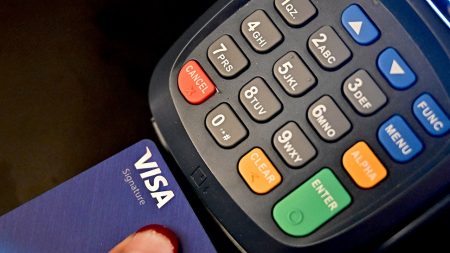Digital assets now are a major cause of problems settling and distributing estates. You need to carefully consider and incorporate your digital life in the estate plan.
Almost all states enacted a form of the Uniform Fiduciary Access to Digital Assets Act, which gives an estate executor the right to manage computer files, web domains, and virtual currencies unless the will or other document specifically prohibits the access.
The Uniform Electronic Estate Planning Documents Act, now making its way through state legislatures, would recognize electronic and digital signatures on wills, trusts, and other estate planning documents. Paper and ink signatures would be necessary no longer.
But neither law gives an executor or anyone else access to email, text messages, social media accounts, and other digital assets without express permission in a will, trust, power of attorney, or other legal document or a court order. Federal law generally prohibits such access without express permission.
More importantly, the laws don’t address the practical actions you should take as part of the estate plan to reduce distress and turmoil for your survivors.
I’ve heard stories of survivors who didn’t know how to take basic actions with the deceased’s electronic lives such as opening s smartphone, reviewing email accounts, accessing financial accounts, and paying bills.
Over the longer term, survivors need to manage investments and other assets, stop automatic bills and subscriptions, distribute assets, and more.
To make the situation worse, cyber thieves have learned of the problems with digital estates. Theft of the identities of the recently-deceased became a fast-growing crime in recent years. Often, the thieves do a lot of damage before the survivors are able to access and manage digital assets.
Actions that need to be taken to avoid big problems can be put in two large categories.
The first category of actions is to create an inventory of your digital life. You need to prepare a guide for others to many actions that you consider routine and take for granted.
Start with your smartphone and other personal devices, such as a tablet, laptop, and desktop computer. Create a list of your devices and how to access them.
Survivors can’t use the biometrics many of us use today. They need an access code. Make a list of the devices and their codes or other ways to access them.
The smartphone is the key to entering many digital accounts today. Many online accounts have two-factor authorization. After the user enters the username and password, a code is sent to the smartphone and must be entered online or in the app before access is permitted.
Next up are the intangible digital assets. These are online accounts or services protected by log-in security. Start with email, social media apps, message board accounts, and subscriptions. Many people now have subscriptions to multiple streaming services.
You might have files protected by encryption on a computer hard drive, portable drive, or online cloud accounts. Any web domains you own also are digital assets.
The most important digital assets are online financial accounts and medical records. Be sure to develop a comprehensive list of these. Don’t forget to include any nontraditional digital assets you own, such as digital (or crypto) currencies.
Some assets can be hybrids, such as financial accounts. They often can be accessed in person or via telephone. But you might make some or all transactions online, and your executor or trustee might prefer to take actions online. Include hybrid assets in your digital inventory and indicate if you have activated online or telephone access.
Automatic payments frequently are overlooked. Make a list of all automatic payments, stating whether they are deducted from a financial account, charged to a payment card, or paid through some other means. It could take a while to ensure the list is complete, because some automatic payments are annual.
Some online services or apps have their own estate planning tools, known generally as legacy contact features. Apple and Google allow you to designate who may access your phone and other accounts after you pass away. Meta Platforms has a similar feature for Facebook and Instagram. Be sure to set up these features and include them in your digital inventory.
You might have “purchased” and downloaded items such as books, music, movies, and more. Under the agreements for most of these assets, you bought only a license to use them, and the license usually expires with your death. Include these assets or accounts in your inventory with your understanding of the licensing terms. Some of these assets might have recurring charges the executor should know about.
Compile all these items in a digital inventory that can be used by your executor, trustee, and survivors.
The inventory should include the name and web address of each account or asset. List any account number and the full name of the account holder, whether it’s your name or something else. Include any physical address or telephone number.
Also, include all the information needed to gain access, such as a username or personal ID and a password. If two-factor authentication is used, list where the authentication code is sent. Many digital accounts also have security questions. Include the questions and answers in the inventory. Add any other helpful information or comments to the inventory.
While the work isn’t difficult, it can take a lot of time to ensure the inventory is complete.
The second category of actions is to decide who will have access to and responsibility for your different digital assets.
Go through the digital inventory to decide who should access the different items. Then, state clearly in your will, trust, and power of attorney who should have access to and management ability over each of the digital assets and accounts.
Without that express direction, there could be difficulty settling your estate, accessing assets, paying bills, shutting off automatic payments, and taking other actions.
Remember the Uniform Fiduciary Access to Digital Assets Act allows an executor to manage computer files, web domains, and virtual currencies unless the will or other document specifically prohibits the access.
Determine if you want the executor to have access to all this information. If so, state that in the will, even if your state law already allows it. But when you don’t want the executor to access all that information, you need to define the executor’s limits.
For example, some people chose an executor based on the ability to handle financial and legal matters. But they don’t want that person to have unlimited access to their computer files, web domains, email, or other personal items.
If your spouse or an adult child is the executor, you might be comfortable with that person having access to all that information. If not, state in the will who has access to the different types of accounts and assets. Then, be sure whoever reviews emails and perhaps other communications knows to look at them regularly and forward to the executor any communications or information related to settling your estate.
Read the full article here













